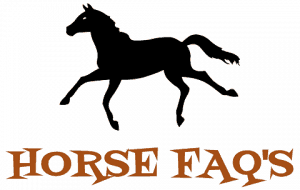We are more acquainted to extra care for domestic horses and keep wondering why horses in the wild seem okay on their own. While you have to trim hooves of your domestic horse, the wild horse doesn’t need trimming.
So how do wild horses maintain their hooves? Wild horses are always out on the run. They cover long distances every day on tough gravel. The unfriendly terrains help in shaping hooves thus preventing overgrowing.
Hooves grow faster and longer probably more than human nails. This happens faster in domestic horses because they are rarely moving. Even if they move, owners are always careful on where the horse will step. In this case, the growing hooves are never exposed to the hard ground for trimming. This is why you have to consistently visit the farrier.
Why horses need shoes
This needs to be clear, wild horses don’t need shoes. They have a natural protection against unfriendly terrains.
When talking of hooves, it is about your horse in the stable. First, it is not used to long distances and hard gravel. Also, whenever it is carrying you, all the weight is exerted on the hooves. Shoes help reduce the tension between the horse hooves and the ground. It is often strenuous for domestic horses because they only carry you or run for distances occasionally.
Additionally, domestic horses tend to have weaker hooves because of inadequate exercise and staying in damp grounds. While you might be doing your best to maintain nutrition of your horse, there is a high likelihood you are missing some crucial nutritional components. In such conditions, a horse would need shoes to protect it from splitting if you intend to ride on a hard surface for long. The splitting might not happen on the first day but continuous exposure to such environments without protection causes wear and tear that will eventually lead to hoof splitting.
After how long should I go to the farrier?
Hooves need regular care. First, you won’t like the sight of your horse’s with overgrown hooves. Besides, it affects walking, it might be uncomfortable to the point of pain. It is worse if you want to ride it on a hard surface. Also, hooves are more than the external effect. They are connected to internal tissues; ligaments and tendons will be affected, which means with time your horse won’t move. If this exceeds to weeks, you can guess the effect on other parts of the body.
Hoof care is that important!
Now that you can’t be riding the horse everyday over long distances on hard surface like the wild horses, you need to schedule regular visits to the farrier.
Hoof care is not only for unshod horses, even your shod horse needs regular foot care and maintenance. Hooves should be trimmed naturally as horses moves in the wild and hard surfaces. Now that you love your horse and want it to stay in a stable, you should be the nature. Go an extra mile to care for its hooves. Abrasive surfaces would have prevented hooves from overgrowing and affecting the ligaments but keeping it in a damp environment enhances growth. You have to trim it.
Are shod horses safe from this?
When you decide to buy shoes for your horse, you should also set apart money for a farrier for visits in at least 4 weeks intervals. Shoes do not prevent hooves from growing. It only protects the horse from abrasive surfaces, which are crucial in shaping the hooves. You will be shocked at the length and appearance of the hooves after several weeks. A farrier is the only way to restore your horse’s health. Yes, health because it is uncomfortable and it might be extending to functionality of tissues. Be sure to set regular appointments with a nearby and professional farrier to keep the hooves in shape.
Also, you don’t have to keep the shoes throughout. If the horse is working intermittently, shoes may not be necessary. In fact, most horses only need shoes for the front part. There is no point of keeping hooves confined if it staying most of the time within the stable. Remember the hooves are better on their own like for the wild horses, you don’t have to go completely against nature.
Today, there are hood boots intended for work time only. You can let the hooves be free and only cover with the boots when its time for work. It helps in protecting the horse’s hooves from abrasive surfaces, which will obviously be a harsh experience for a domestic horse. Instead of keeping it in shoes all day, buy boots.
What about unshod horses?
Even if you work with your horse 4 times a week, the pasture and soft ground will not help with trimming the hooves. The best option is to work with a farrier. It may seem unnecessary until you experience inactivity and low performance of your horse. Overgrown hooves can affect other internal body organs and tissues. A farrier is the best option.
Summary
Wild horses work by nature, they maintain their hooves by covering long distances on abrasive surfaces. For your domestic horse, you need a farrier. Hooves can’t keep growing on your watch! If they do the horses health becomes a factor. Just look up overgrown horse hooves and there are some very sad pictures out there. It can also be painful for the horse if they hooves are not taken care of.
Keep a regulars schedule and you should be fine. We do ours usually every 6-8 weeks for trims and this will vary depending on how much they are out in the pasture vs being in their stalls. You will get to know your horse and depending on horse type & terrain you can set your schedule accordingly.
Do your research on farriers ask around get a local referral as that is usually the best way to go. If you have an issue like a shoe falling off our you need them to come out and look at something that doesn’t look right they can come right over.

